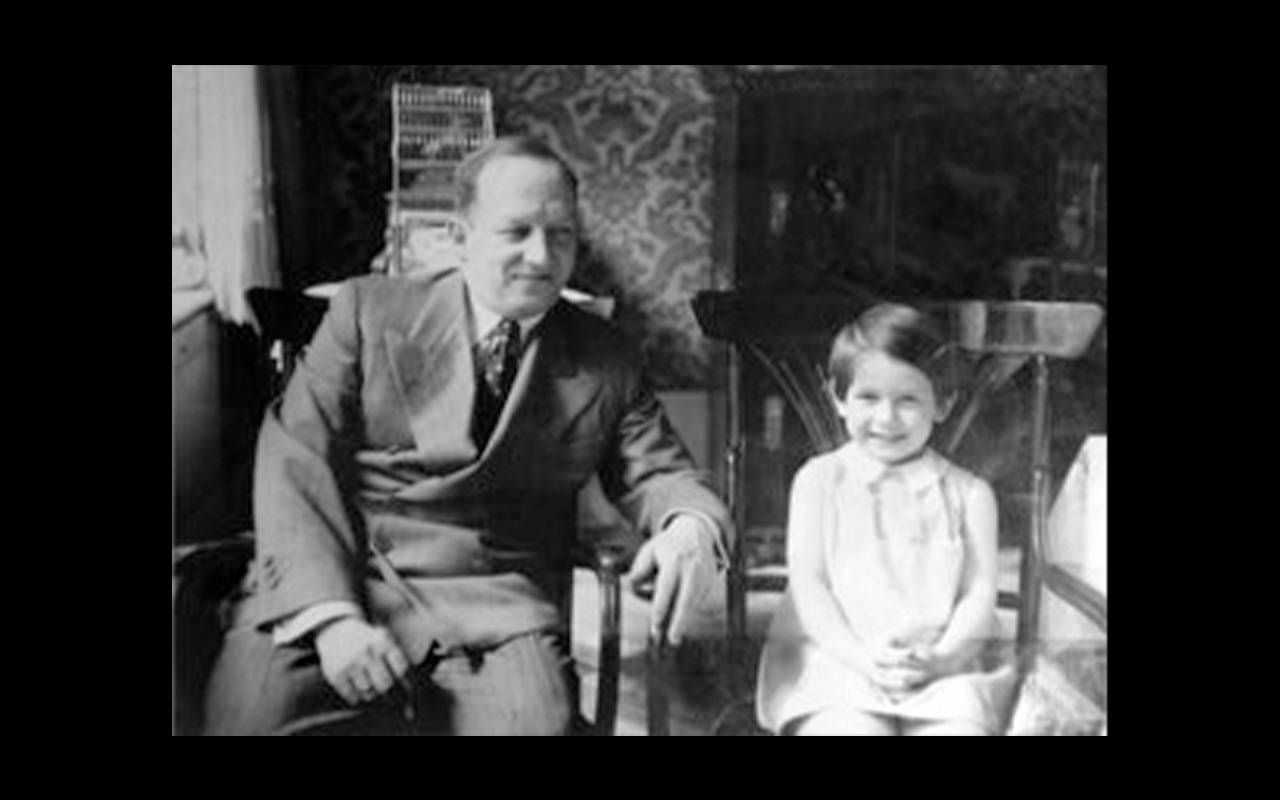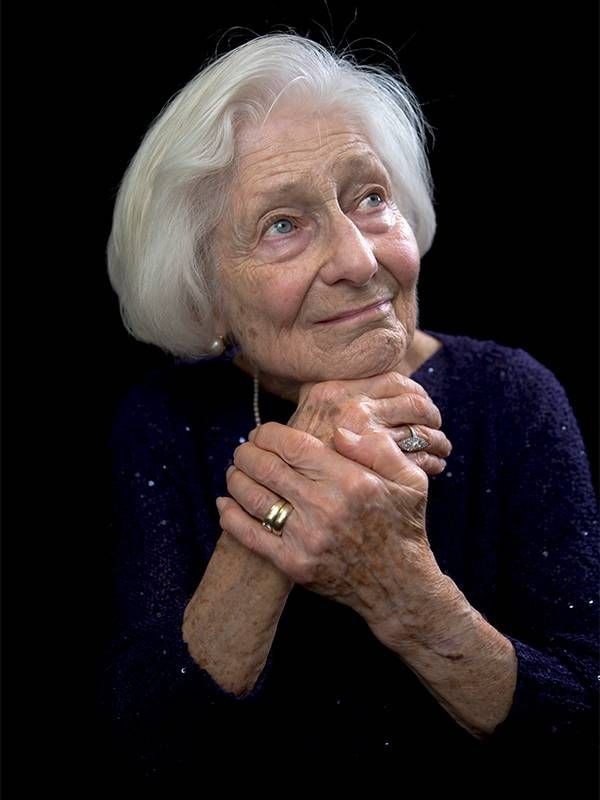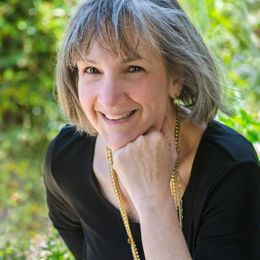A Holocaust Survivor With a Mission
Irene Butter, a friend of Anne Frank, continues to tell her own story to highlight the importance of empathy and compassion
For almost 30 years, Irene Hasenberg Butter kept quiet about her Holocaust experience. Once she started talking about it, she never stopped.
"And so here I am all these years later," she said.

At age 92, Butter inspires audiences around the world. She won a German award for Best Podcast of 2022. She laid the groundwork for the Irene Butter Fund for Holocaust and Human Rights Education. Her book, "Shores Beyond Shores," has been published in five languages. She is a Professor Emeritus at the University of Michigan and lives in Ann Arbor.
She still recalls conversations through a barbed-wire fence at the concentration camp with a friend named Anne Frank.
Irene Butter is on a mission. She models something she says we can all do. Teens and adults learn much more than Holocaust history from Butter. She leads conversations on bullying, empathy and multi-generational trauma.
Butter carries strong memories of World War II. She still recalls the danger of walking in certain neighborhoods of Amsterdam and Berlin as a child. She still recalls conversations through a barbed-wire fence at the concentration camp with a friend named Anne Frank. She still recalls her father's ironic death. She still overeats at times out of fear no more food will be available.
Her Family's Story
Irene "Reni" Hasenberg lived with her parents and her older brother, Werner. Her father's work in banking allowed the family a level of privilege. Their lives quickly and dramatically changed when Hitler and the Nazi party rose to power. The Hasenbergs endured extreme hunger and illness at the Westerbork and Bergen-Belsen concentration camps. In one regard, she said, her family was fortunate.
"I was with my family the whole time. Most Jews did not have that. In most cases, the families were separated. But we were able to be with family and enjoy the support we could give each other."
The family's eventual release from the Bergen-Belsen camp was attributed to a little-known prisoner exchange policy. The Nazis kept alive Jews who held foreign passports. Many Jewish people were forced to relinquish their passports, but some, including the Hasenbergs, held documents.
Just two months before the camp was liberated in 1945, the Hasenbergs were allowed to board a Red Cross train from Germany to Switzerland. The relief of their freedom was short-lived.
"They said, 'Now you're here. You have arrived in America. You must never speak about your past. You have to start a new life.'"
"After two days on the train, my father passed. And so, his remains were taken off the train. My mother and my brother and I continued."
John Hasenberg's body was set on a bench at the train station. Reni was 14. Almost 80 years later, her voice cracked as she told the story.
Reni, Werner and their mother were then separated for the first time, spending several months in southern European communities for displaced persons. They were reunited when some family members in the United States sponsored their moves.
The Hasenbergs were free from the Nazis, but they were not free to talk about their experiences.
"When I first came to America, nobody wanted to listen," Butter recalled. "I arrived and I lived with relatives — cousins of my mother — and I'll never forget the first evening when I arrived in their apartment. They said, 'Now you're here. You have arrived in America. You must never speak about your past. You have to start a new life.'"
"We learned our lesson. We didn't bring it up again. It became a habit not to speak. Once a year, on the anniversary of my father's death, we would talk about it."
Irene, as she has been known in the US, was a stellar student. While in graduate school at Duke University, she met Charlie Butter. They married and had two children.
As her children grew, so did Butter's awareness of her purpose in life. In the mid-1970s, a request from her daughter was the first of three events that motivated Butter to speak about her Holocaust experience.
Speaking Her Truth
"My daughter, when she went to middle school, was taking a course in public speaking. The topic she chose was 'Anti-Semitism, Hitler's Conquest of Europe and the Concentration Camps,' and she came home and said, 'Mom, will you be my visual aid?'"
Butter's role was to speak about the concentration camps for 15 minutes of her daughter's hour-long presentation.

"I was petrified because I'd never talked in public. I guess I was afraid the students might laugh or fall asleep or who knows? But it went well."
"The second time was in the 80s. There was an exhibition that traveled the country. It came to Detroit, and I was invited to serve on a panel to speak about Anne Frank."
The invitation was not a coincidence. Butter and Frank were both from Amsterdam and briefly knew each other at Bergen-Belsen.
"So I was thinking, now what would I say on this panel? And I realized that Anne Frank – her voice was silenced forever. And here I was, having been given the gift of life, and so I needed to talk. I needed to tell her story as well as my story."
Following that event, Butter started to receive invitations to speak at schools in the region.
"And then the third motivating factor was that one day I heard Elie Wiesel speak." Wiesel was a Holocaust survivor, author and Nobel Peace Prize winner.
"He said, 'If you're a survivor, if you were in the camps, if you smelled the air and heard the silence, then you have to tell your story. You have to be a witness. And if you don't do that, then the victims will die twice.'
"And it had a deep impact on me. And then I considered it a responsibility and a mission. And I've been talking ever since."
Many of Butter's talks are for high school and college students. The magnitude of the Holocaust is difficult to understand, but there are contemporary parallels that help young people to relate. Butter pointed out examples such as biases against people who are homeless or transgender.
'You Have to Take Action'
"They understand bullying," Butter said of her audiences. "I tell them, 'Don't walk away from bullying. Become an ally. The worst thing is to turn your back.'"
She sometimes hears from kids whose grandparents were in the camps and have never talked about their experiences. She offers a simple piece of advice: "Ask."
Some of the students in Butter's audiences understand inter-generational trauma. People who were in concentration camps passed forward their fear or anger to their children, and they passed it on to their children.
Butter said she sometimes hears from kids whose grandparents were in the camps and have never talked about their experiences. She offers a simple piece of advice: "Ask."
In 2021, four high school students interviewed Butter for 22 hours on Zoom. Butter was in Ann Arbor. The students were in Germany. The result won the Best Podcast award from a national organization of German journalists.
Butter says we all have something to teach young people about compassion and empathy. The example she sets is as much for adults as it is for students.
Borrowing a phrase used at Holocaust museums, Butter encouraged us to speak up.
"They say, 'Never forget. Always remember.' But remembering is not enough," she said. "You have to take action."
As an educator, Butter wants students to learn the value of human rights through the history of the Holocaust and other genocides. The Irene Butter Fund for Holocaust and Human Rights Education will continue the work of its namesake.


